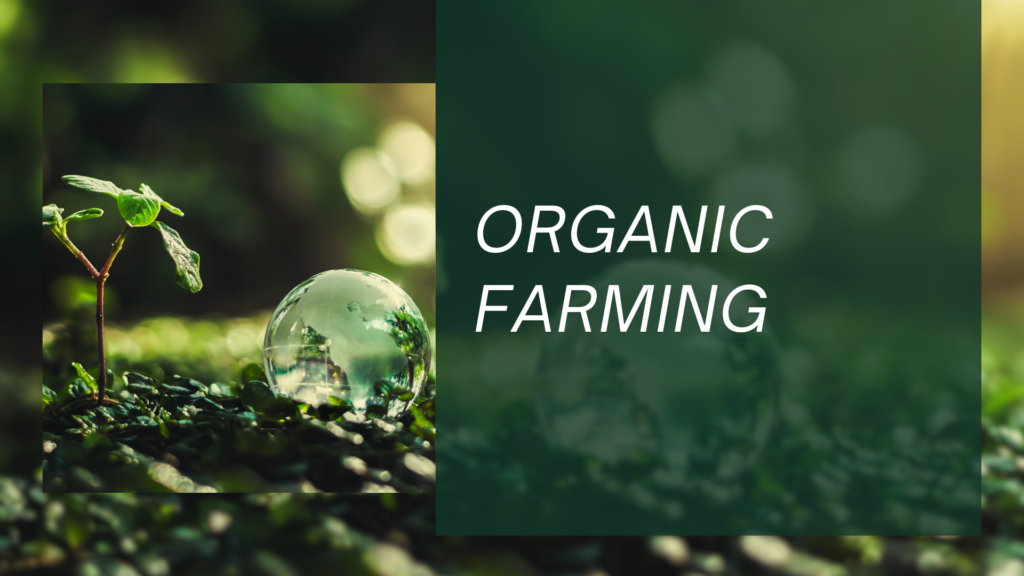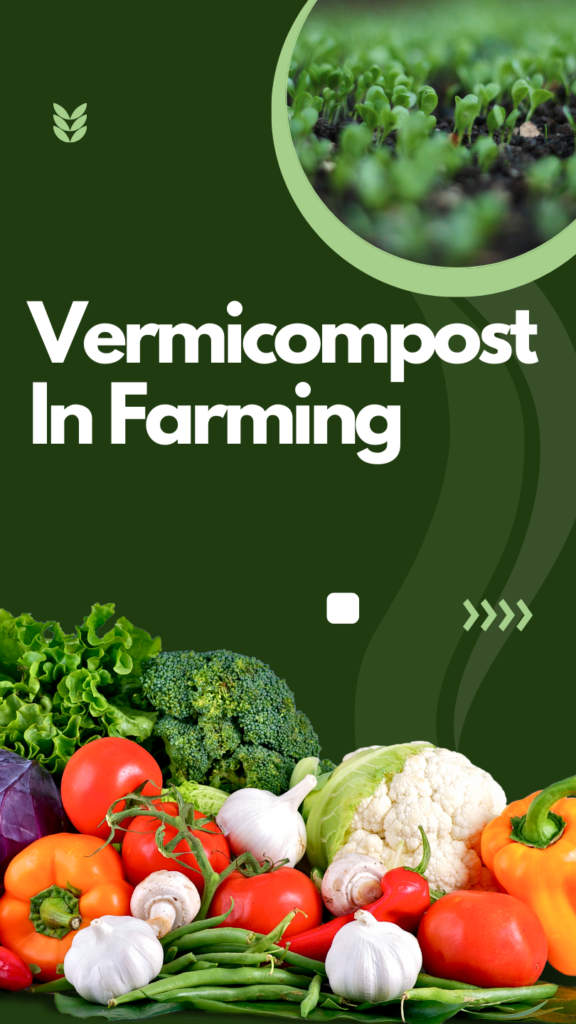Introduction: The Powerful Advantage of Using Vermicompost in Farming
In recent years, more farmers are turning to natural solutions to enhance their crop yields and improve soil health. One of the most effective and environmentally friendly methods is the use of vermicompost. Vermicomposting, the process of using earthworms to break down organic waste into nutrient-rich compost, offers numerous benefits for farmers seeking sustainable agricultural practices. This article will dive into the advantage of using vermicompost in farming and why it’s gaining traction in the agricultural world.
What is Vermicompost?
Vermicompost is a type of organic fertilizer produced by decomposing organic material through the digestive processes of worms, particularly species like red wigglers and European nightcrawlers. As worms consume organic waste, they produce worm castings—an incredibly nutrient-dense material that enhances soil health. The organic nature of vermicompost makes it an appealing alternative to synthetic fertilizers, which can degrade soil quality over time.
Unlike conventional composting methods, vermicomposting works faster and results in a more concentrated blend of nutrients. This process transforms common organic materials—like food scraps, leaves, and manure—into a high-value soil amendment that improves soil structure and fertility.
The Vermiculture Process
Vermiculture refers to the cultivation of worms specifically for composting. This process involves housing worms in ideal conditions, feeding them organic waste, and collecting the nutrient-rich compost they produce. Worms naturally decompose organic matter, and as they digest it, they excrete castings filled with beneficial nutrients like nitrogen, phosphorus, and potassium. These castings enhance soil health, which leads to more productive crops.
Common worm species used in vermiculture include Eisenia fetida (red wigglers) and Lumbricus terrestris (European nightcrawlers). Both are highly efficient at breaking down organic material and thriving in composting systems.
Nutritional Benefits of Vermicompost
One of the most notable advantages of using vermicompost in farming is its high nutrient content. Vermicompost is packed with essential nutrients, including:
- Nitrogen: Key for plant growth and green foliage.
- Phosphorus: Promotes root development and flowering.
- Potassium: Supports overall plant health and disease resistance.
These nutrients are present in a form that plants can easily absorb, resulting in stronger growth and higher yields. Additionally, vermicompost contains trace elements like calcium, magnesium, and sulfur, which further contribute to healthy soil and robust plant development..
Improving Soil Structure and Health
Soil health is the foundation of successful farming, and vermicompost offers significant improvements to soil structure. By adding vermicompost, farmers can enhance soil aeration, which improves oxygen levels and allows plant roots to breathe. Vermicompost also boosts water retention in the soil, reducing the need for frequent irrigation.
Perhaps one of the most important benefits is the introduction of beneficial microbes. These microbes foster nutrient cycling, making essential nutrients more available to plants and improving soil fertility over time. This leads to healthier crops and better long-term soil sustainability.
Boosting Crop Yields with Vermicompost
Research has shown that crops grown with vermicompost often experience higher yields compared to those grown with traditional compost or chemical fertilizers. Case studies from various farms highlight significant increases in crop production, especially in organic farming systems where vermicompost serves as a primary nutrient source.
For example, in regions like India and parts of Africa, farmers using vermicompost have reported yield increases of 20-40% for crops such as tomatoes, corn, and beans. This dramatic improvement is attributed to the nutrient-dense quality of vermicompost, which encourages faster and healthier plant growth.
The Role of Earthworms in Vermicomposting
Earthworms play a critical role in the vermicomposting process. As they consume organic waste, they break down tough materials that are hard for microbes to decompose. Earthworm digestion produces worm castings, which are rich in humus—a material that improves soil texture and nutrient availability.
Moreover, earthworms help to aerate the soil as they burrow, creating channels that allow for better water infiltration and root penetration. Their constant movement through the soil mixes organic matter with mineral particles, ensuring even distribution of nutrients.
Organic Farming and Vermicompost Integration
Vermicompost is a natural fit for organic farming practices. Since it is 100% organic, it aligns with the principles of organic agriculture, which prohibit the use of synthetic fertilizers and pesticides. Vermicompost not only supplies essential nutrients to crops but also improves soil health without the negative environmental impacts associated with chemical fertilizers.
Farmers practicing organic agriculture can use vermicompost to meet their nutrient management needs, enhance soil fertility, and boost crop resilience to diseases and pests. This integration supports sustainable farming practices while ensuring long-term productivity.
Reducing Chemical Dependency

One of the significant advantages of using vermicompost in farming is its ability to reduce the reliance on chemical fertilizers and pesticides. Vermicompost naturally enriches the soil and promotes plant health, reducing the need for synthetic inputs that can be harmful to the environment and human health.
By using vermicompost, farmers can cut back on the use of chemical fertilizers, which often lead to soil degradation and water contamination. Vermicompost’s slow-release nutrients help maintain soil fertility over time, providing a more sustainable and eco-friendly alternative.
Vermicomposting for Pest Control
Another overlooked benefit of vermicompost is its ability to promote natural pest resistance. Research has shown that plants treated with vermicompost are less susceptible to pests like aphids, whiteflies, and nematodes. The microbes and nutrients in vermicompost improve plant health, making them more resilient to pest attacks.
Additionally, vermicompost can suppress harmful pathogens in the soil, creating a healthier growing environment for crops. This dual action of enhancing plant strength and reducing pest pressure contributes to more sustainable pest control strategies.
Environmental Benefits of Vermicompost
The environmental benefits of using vermicompost in farming are vast. Vermicomposting reduces waste by recycling organic materials that would otherwise end up in landfills. This process also lowers methane emissions, a potent greenhouse gas produced by decomposing organic waste in landfills.
By incorporating vermicompost into farming practices, farmers can reduce their carbon footprint and contribute to global efforts to mitigate climate change. The composting process itself is carbon-neutral, and the resulting organic fertilizer helps improve soil carbon sequestration.
Cost-Effectiveness of Using Vermicompost
From an economic standpoint, vermicomposting is a cost-effective solution for farmers. Although initial setup costs may include materials for worm bins or composting areas, the long-term savings from reduced fertilizer and pesticide use can outweigh these upfront expenses. Moreover, farmers who produce their own vermicompost can save on purchasing expensive synthetic fertilizers.
Vermicompost also enhances soil productivity, leading to higher crop yields and more profitable harvests. In the long run, vermicomposting offers a sustainable and economically viable farming solution.
Challenges of Vermicompost Production
Despite its many advantages, there are some challenges associated with vermicomposting. The process requires space, time, and regular maintenance. Worms need to be cared for, fed a consistent supply of organic waste, and kept in optimal conditions for effective composting.
Farmers may need to invest time in learning about the process and setting up vermicomposting systems. Additionally, large-scale farming operations may require more substantial infrastructure to meet their composting needs.
Vermicompost vs. Traditional Compost
When comparing vermicompost to traditional compost, there are clear distinctions in nutrient content, speed of production, and environmental benefits. While both methods result in nutrient-rich organic fertilizers, vermicomposting tends to produce more concentrated and immediately available nutrients, making it more efficient for improving soil health. Additionally, vermicomposting works faster than traditional methods, often completing the process in a few months compared to the year-long cycle for traditional compost..
The Future of Vermicomposting in Sustainable Agriculture
Vermicomposting is rapidly gaining attention as a sustainable agricultural practice, particularly as farmers seek alternatives to chemical fertilizers and pesticides. With increasing awareness of soil health and climate change, vermicomposting is likely to become a central component of organic and regenerative agriculture. Continued research into optimizing vermiculture systems, combined with rising demand for sustainable farming practices, suggests that the future of vermicomposting is bright.
How Farmers Can Start Using Vermicompost
Farmers interested in integrating vermicompost into their operations can start by creating simple worm bins or larger vermicomposting systems depending on their farm’s size. These bins are easy to set up and require little maintenance, apart from regularly feeding the worms organic waste. Over time, farmers can scale their systems to produce enough vermicompost to meet their nutrient needs, potentially reducing reliance on synthetic inputs and improving crop yields.
FAQs
1. How long does vermicomposting take?
The vermicomposting process typically takes between 3 to 6 months, depending on conditions like temperature, moisture, and the type of organic material used.
2. What kind of worms are used in vermicomposting?
Common worm species include red wigglers (Eisenia fetida) and European nightcrawlers (Lumbricus terrestris), which are highly efficient at breaking down organic matter.
3. Can I use vermicompost for all types of crops?
Yes, vermicompost is versatile and can be used for a wide variety of crops, including vegetables, fruits, flowers, and grains.
4. How much vermicompost should I use?
The amount of vermicompost needed depends on the crop type and soil condition, but generally, 10-20% vermicompost mixed with soil is effective.
5. Can vermicompost replace chemical fertilizers completely?
In many cases, vermicompost can significantly reduce the need for chemical fertilizers, although it may not entirely replace them depending on the crop and soil type.

